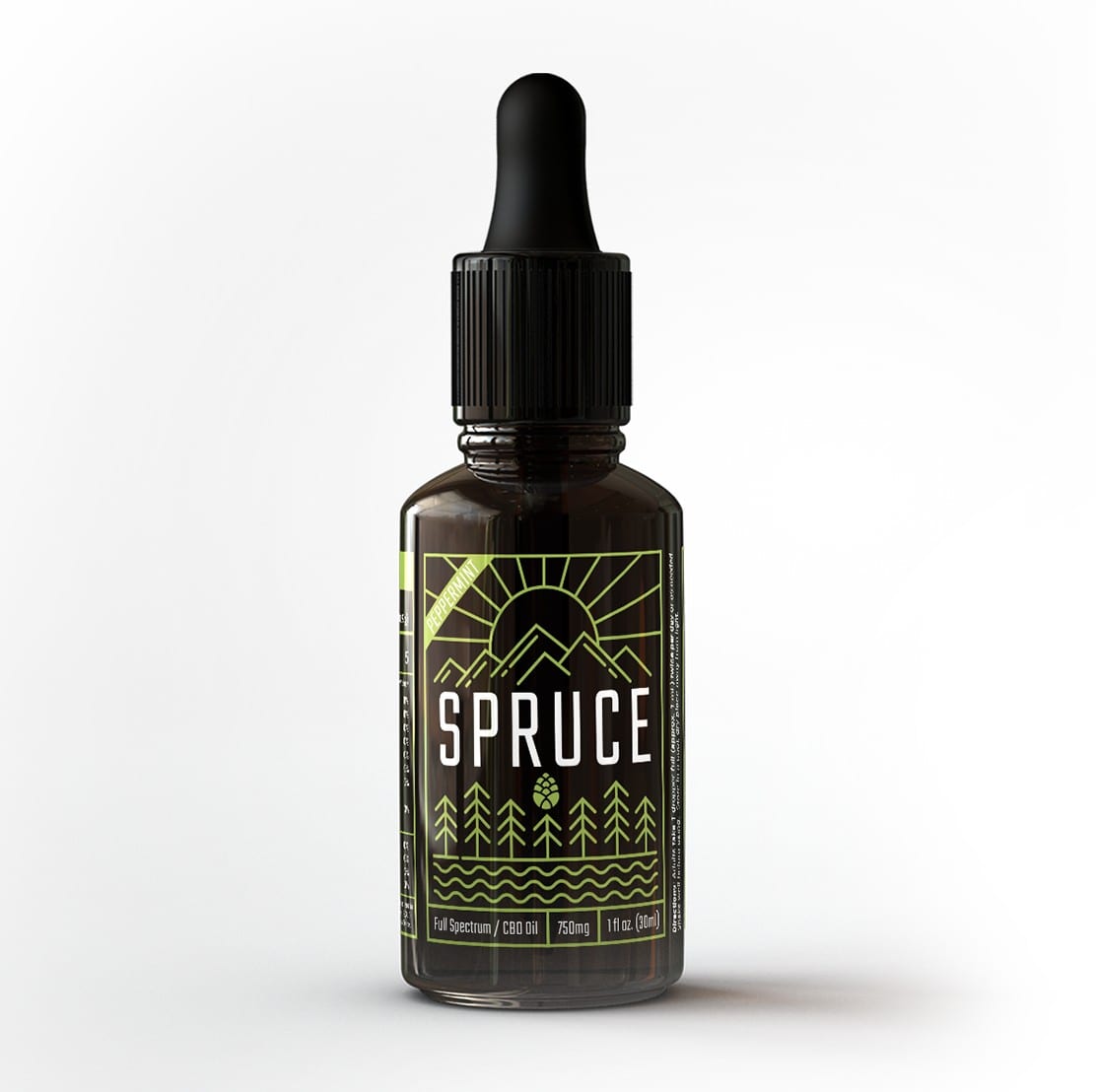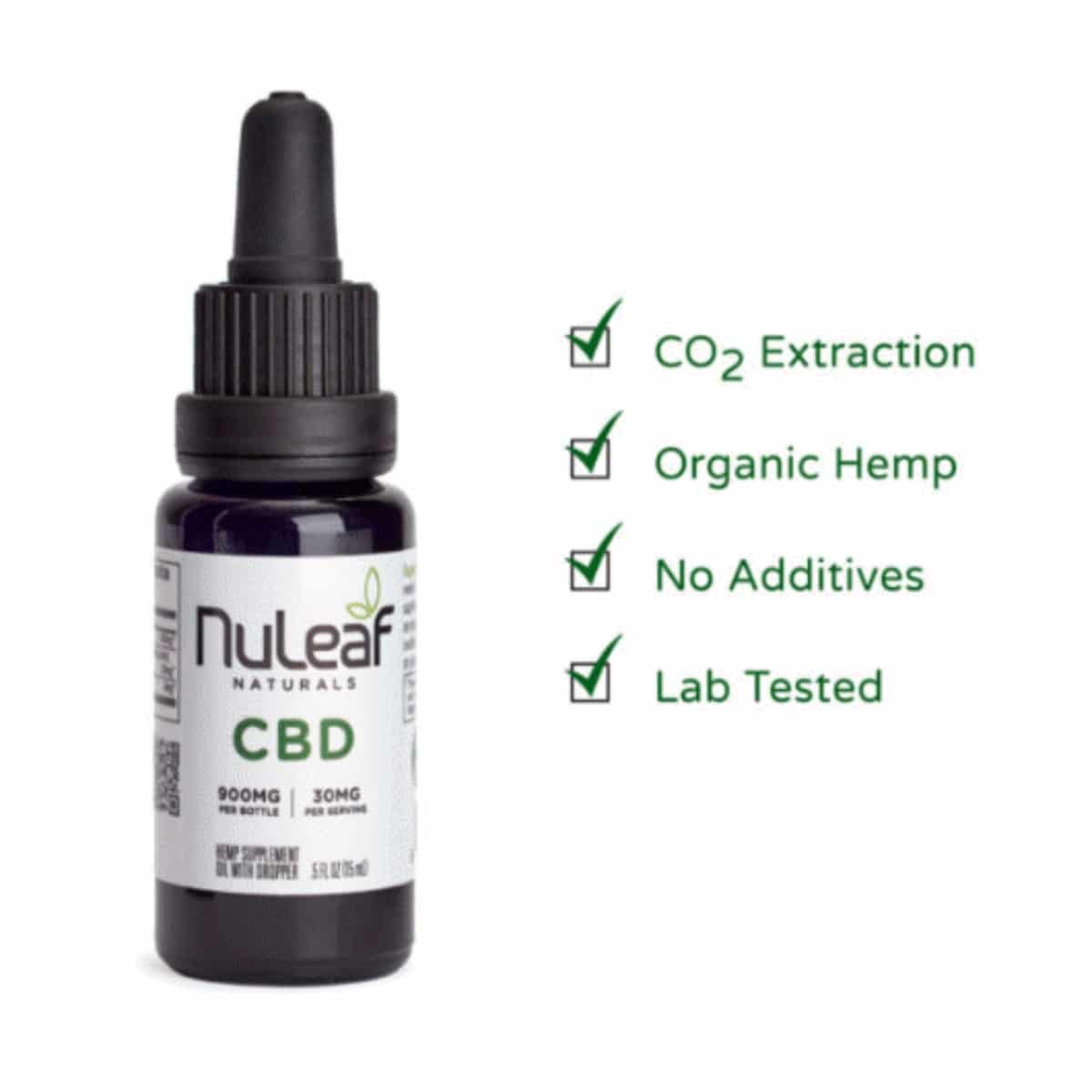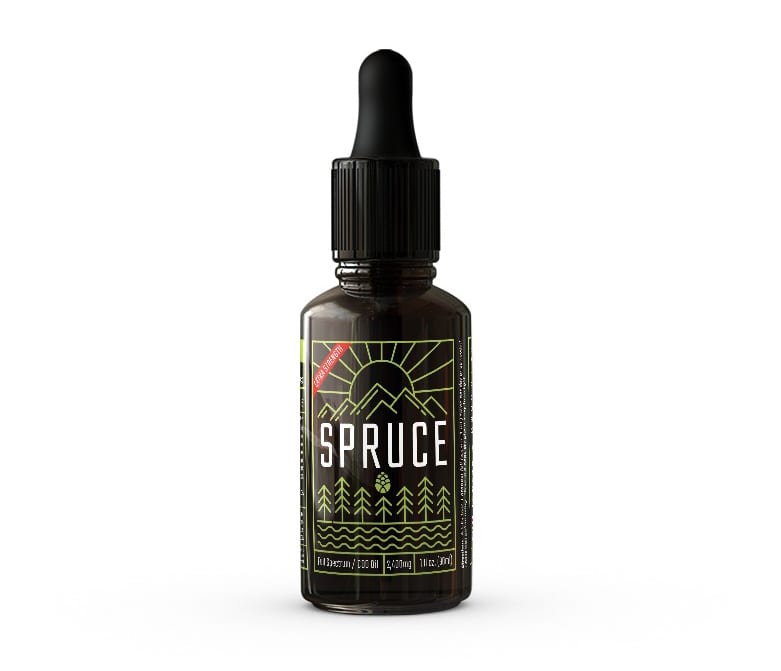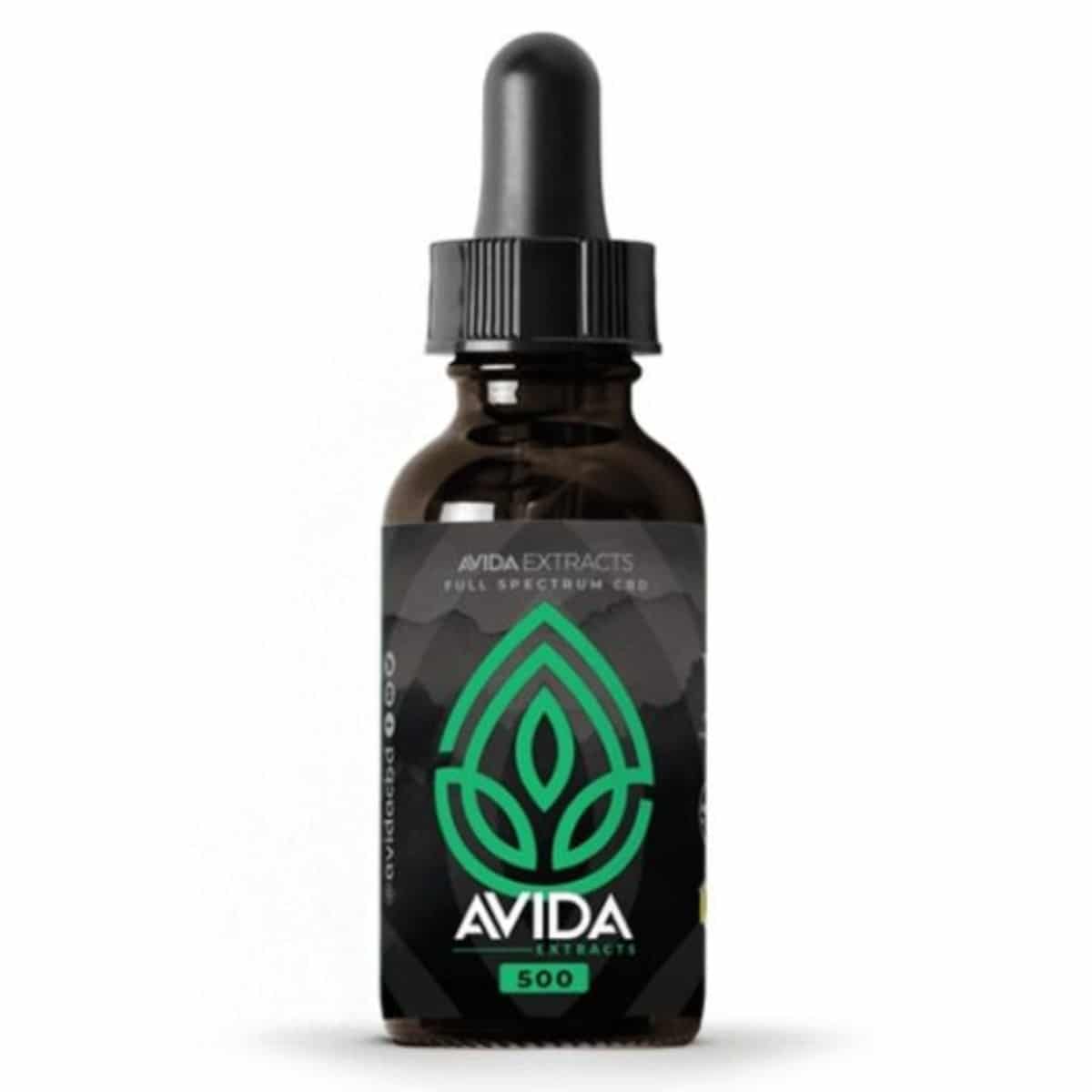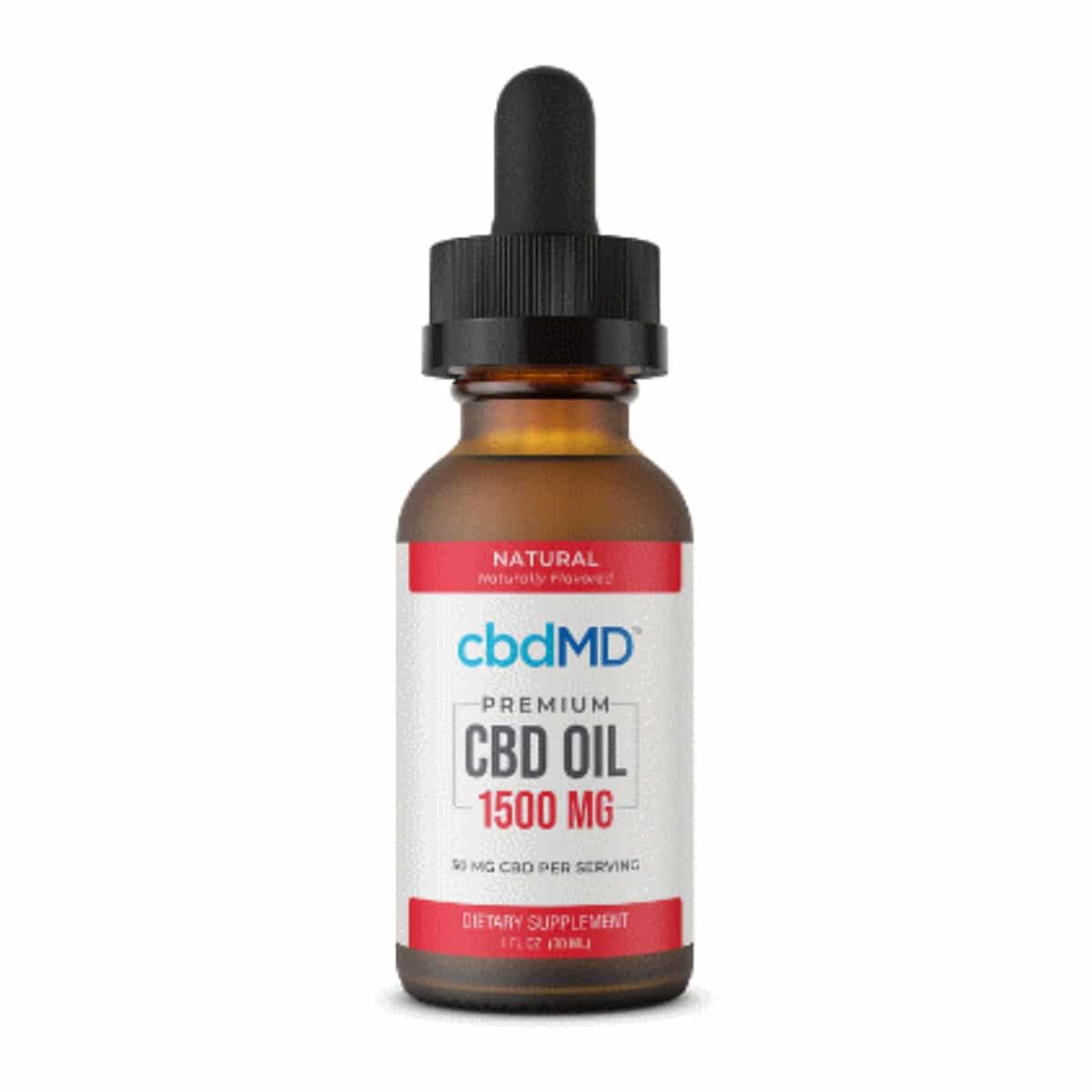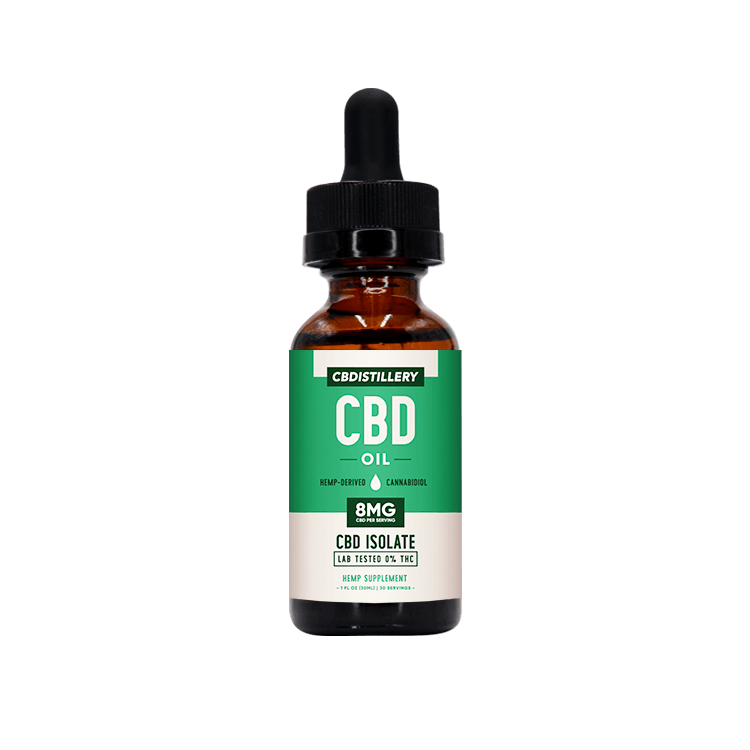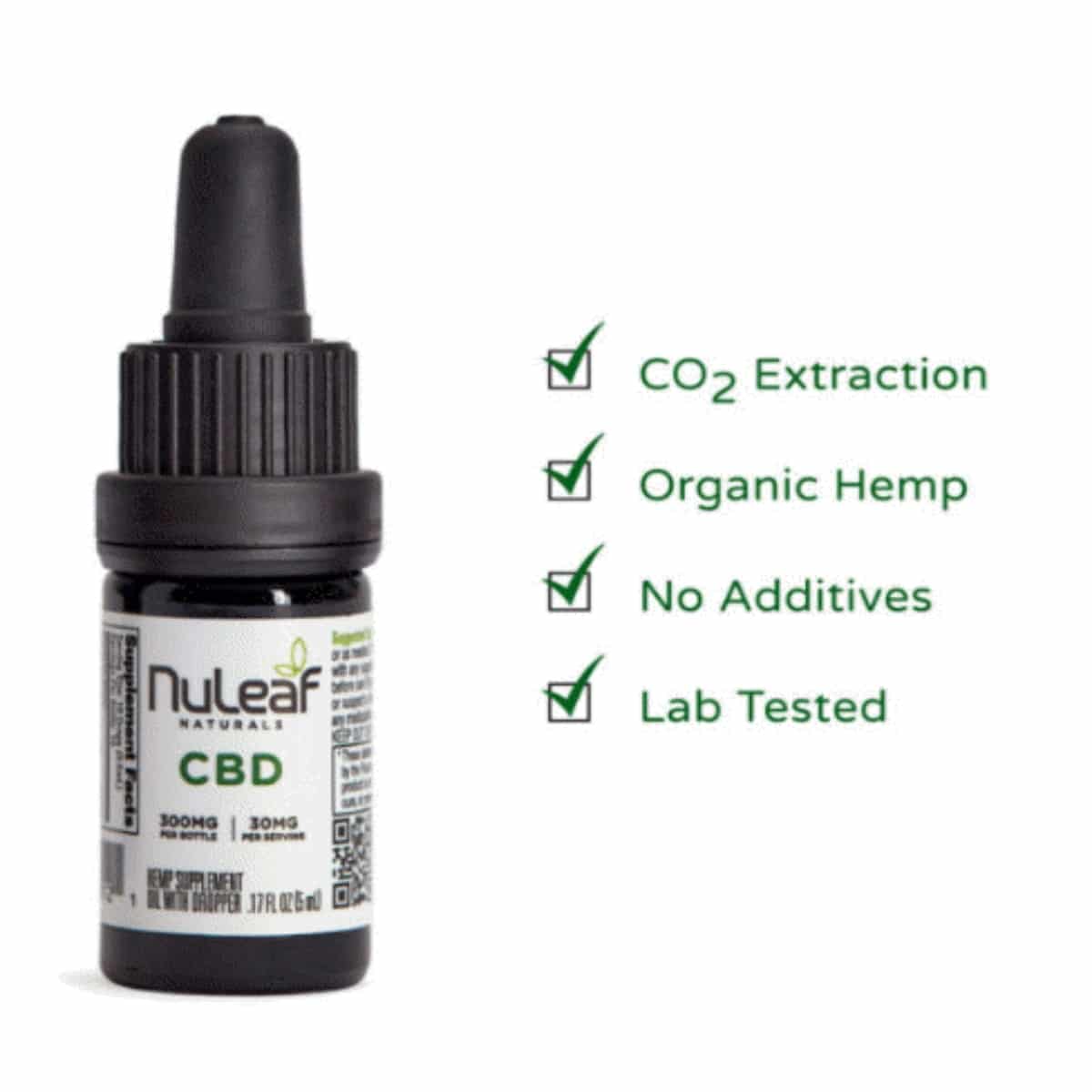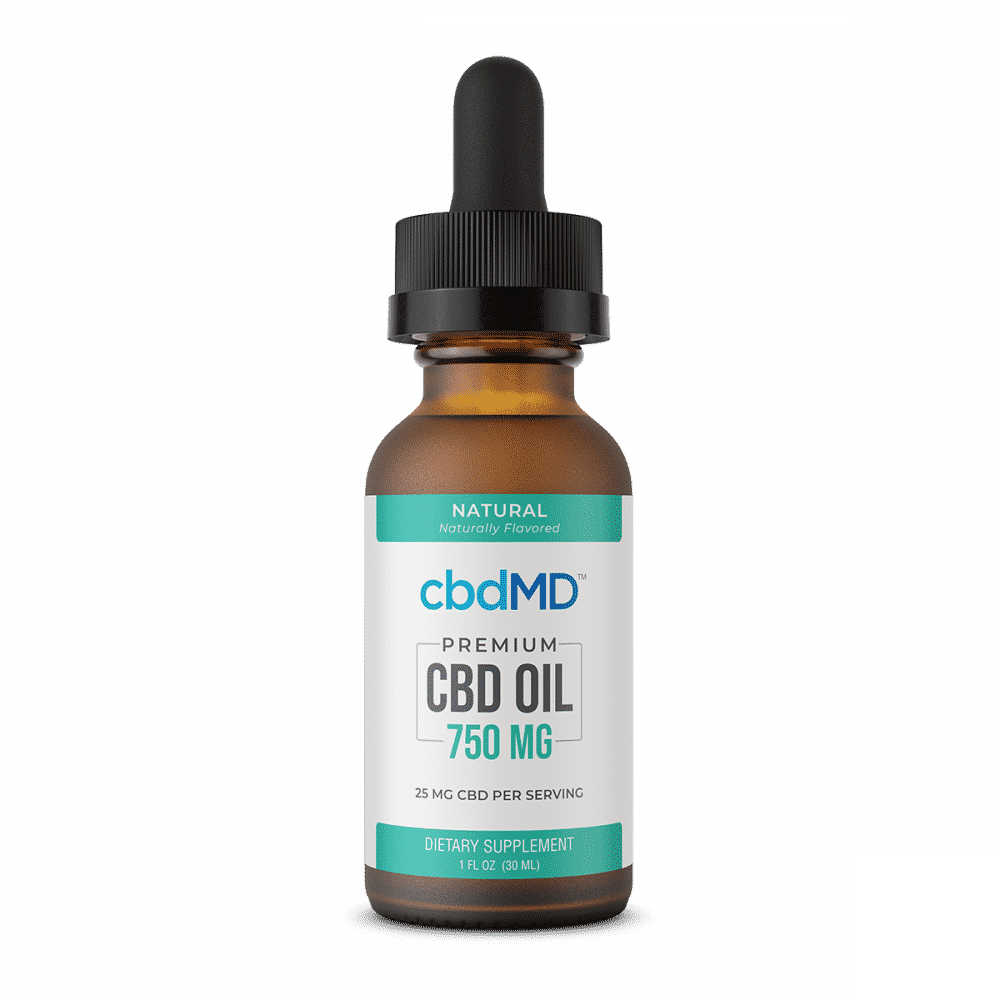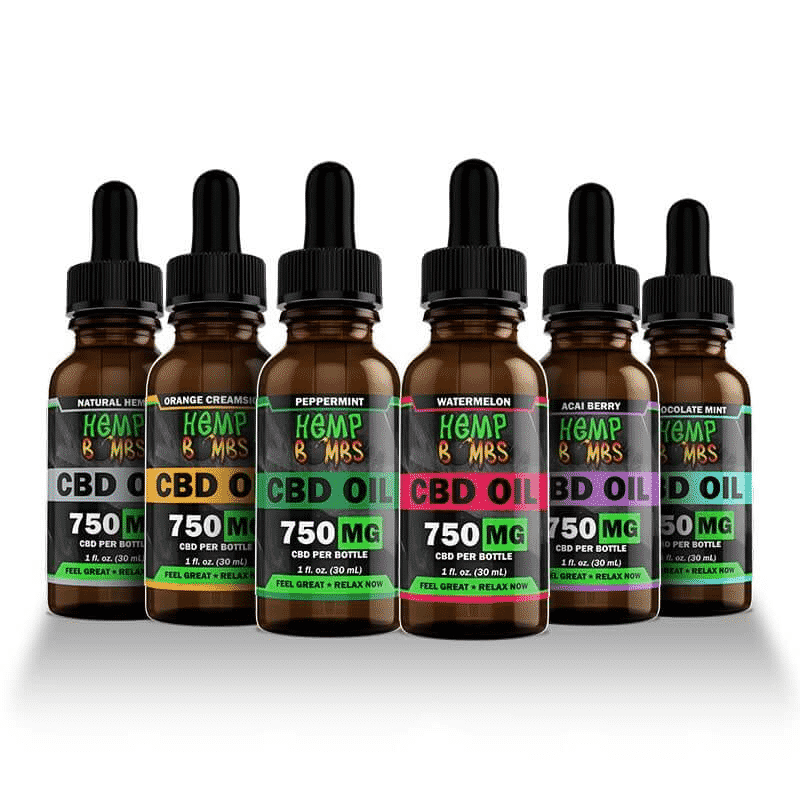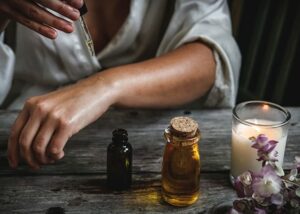Best CBD for Addiction
Although drug addiction appears to have no cure at present, some remedies may help you overcome addiction and stay drug-free. Learn more about CBD’s benefits in addressing substance abuse and helping with mental health.
Best CBD for Addiction 2025
- Spruce 750mg Lab Grade CBD Oil Editor's Pick
- NuLeaf Naturals 900mg Full Spectrum Hemp CBD Oil Best Organic
- Spruce 2400mg Lab Grade CBD Oil Editor's Pick
- Avida Full Spectrum CBD Oil Tincture 500mg Best Seller
- cbdMD CBD Oil Tincture Natural 1500mg Best Natural Alternative
- CBDistillery THC Free CBD Oil Tinctures Best THC-Free
- cbdMD CBD Oil Tincture Natural 750mg Best Customer Rated
- NuLeaf Naturals 300mg Full Spectrum Hemp CBD Oil Best Starter
- Hemp Bombs 750mg CBD Oil Best Flavor Range
Compare the Best CBD for Addiction in 2022
Best CBD for Addiction
1. Spruce 750mg Lab Grade CBD Oil
cbdc overall score
4.8
CBDC Evaluation Table/Score
| Pros | Cons |
|---|---|
|
Mid-strength |
No other flavors |
|
Natural peppermint flavor |
|
|
Made from 100% organic and natural ingredients |
Overview
Each bottle of the 750mg CBD oil tincture contains 25mg of CBD per dropper full. The oil is peppermint flavor to mask any unpleasant tastes related to CBD.
2. NuLeaf Naturals 900mg Full Spectrum Hemp CBD Oil
cbdc overall score
5.0
CBDC Evaluation Table/Score
| Pros | Cons |
|---|---|
|
Pure CBD hemp |
No other flavors |
|
All natural |
|
|
Approximately 300 drops total |
Overview
Natural remedy for various illnesses. NuLeaf Naturals’ CBD oil is a whole-plant extract containing a full spectrum of naturally occurring synergistic cannabinoids and terpenes.
3. Spruce 2400mg Lab Grade CBD Oil
cbdc overall score
5.0
CBDC Evaluation Table/Score
| Pros | Cons |
|---|---|
|
Extra Strength |
Tastes bitter |
|
No artificial flavoring or colors |
No THC-free option |
|
Made from 100% organic and natural ingredients |
Overview
The largest bottle of CBD oil that Spruce offers contains 2,400mg of CBD. This is full-spectrum CBD oil, which is the maximum possible potency. Each high potency dropper full contains 80mg of CBD. There are no flavorings in it, which allows for the most CBD to fit in the 30ml bottle.
4. Avida Full Spectrum CBD Oil Tincture 500mg
cbdc overall score
4.6
CBDC Evaluation Table/Score
| Pros | Cons |
|---|---|
|
Light Spearmint flavor |
No other flavor |
|
Non-THC, Non-detected in drug test |
Overview
Avida Extracts Full Spectrum CBD oil is the latest iteration of the brand’s advanced Avida CORE Spectrum technology. They use a proprietary full spectrum blend, resulting in the highest naturally occurring Phyto-cannabinoids and Terpenes with THC (<0.3) to support your health.
5. cbdMD CBD Oil Tincture Natural 1500mg
cbdc overall score
4.7
CBDC Evaluation Table/Score
| Pros | Cons |
|---|---|
|
Various delicious flavors to choose from |
cbdMD uses MCT as its carrier oil so individuals who are allergic with coconuts should consider other brand options |
|
Has vegan, organic, and gluten-free ingredients |
|
|
Free shipping for this particular product within USA |
|
|
World-class customer service team |
Overview
cbdMD’s CBD oil tinctures are made using only CBD sourced from medical hemp and MCT oil as a carrier oil. Tinctures are offered in orange, mint, natural, and berry flavors. Safe for daily use, the oil tinctures are packaged with a built-in rubber dropper to adjust CBD dosage easily. The packaging is made to be easy to transport and discreet to use.
6. CBDistillery THC Free CBD Oil Tinctures
cbdc overall score
4.4
CBDC Evaluation Table/Score
| Pros | Cons |
|---|---|
|
60-Day Satisfaction Guarantee |
Dropper is a bit shaky |
|
Various strengths |
|
|
Oil extracted from aerial plant parts of US grown industrial hemp |
|
|
Sourced from non-GMO industrial hemp grown in the USA through natural farming practices |
Overview
CBDistillery’s Isolate CBD Oil Tinctures harness the power of pure CBD. CBD Isolate Oil Tinctures include 0.0% THC. When you use CBDistillery CBD Isolate Oil Tinctures, you can be assured you’re using the highest quality CBD on the market.
7. NuLeaf Naturals 300mg Full Spectrum Hemp CBD Oil
cbdc overall score
4.6
CBDC Evaluation Table/Score
| Pros | Cons |
|---|---|
|
Pure CBD hemp |
No other flavors |
|
All natural |
A bit pricey compared to competitors |
|
Approximately 100 drops total |
Overview
This is one of several concentrations from NuLeaf Naturals. As the lowest concentration, it is the company’s best option for those new to CBD oil. The product is lab-tested and fully organic. It is full-spectrum, so it contains THC in small quantities.
8. cbdMD CBD Oil Tincture Natural 750mg
cbdc overall score
4.4
CBDC Evaluation Table/Score
| Pros | Cons |
|---|---|
|
Vegan and Gluten free |
Does not ship internationally |
|
Has a third-party lab test |
|
|
Wide variety of CBD strengths and sizes |
Overview
A 750mg bottle of cbdMD’s Broad Spectrum Oil Tincture does not contain THC. It also has a fairly wide flavor range which is perfect for those who prefer other taste. Vegan consumers are considered since cbdMD offers Vegan products. Aside from all of that, another reason why people love cbdMD is because it’s free from harmful chemicals.
9. Hemp Bombs 750mg CBD Oil
cbdc overall score
3.9
CBDC Evaluation Table/Score
| Pros | Cons |
|---|---|
|
Wide variety of flavors |
Incomplete information about the product |
|
Lab test results are complete |
Does not ship to all international countries |
|
30-day money-back guarantee |
Overview
Hemp Bombs offer CBD Oil Tinctures that come in a 30ml bottle containing 750mg of CBD. They provide a wide range of flavors perfect for those that have a knack for sweets. Consumers can safely intake this because it’s free of chemicals and pesticides. Hemp Bombs also offer a 20% off on products upon subscription.
How CBD May Help With Addiction
Cannabidiol or CBD, one of the abundant compounds of the Cannabis sativa plant, is known to have antipsychotic, anxiolytic, antidepressant, and neuroprotective properties(1).
CBD is a phytocannabinoid that stimulates the cannabinoid receptors of the endocannabinoid system (ECS)(2). This interaction may provide pain relief and anti-inflammatory effects essential for pain management(3).
The ECS is composed of cannabinoid receptors and neurotransmitters that work together to maintain the body’s balance or homeostasis.
Some cannabinoid receptors, such as the CB1 and CB2 receptors, play a role in modulating inflammation, pain, appetite, sleep cycles, and the activity of mood-altering neurotransmitters like serotonin and dopamine(4).
A 2015 study mentioned that CBD may help modulate different neuronal circuits associated with addiction(5).
The same study also suggested that CBD may have therapeutic effects on addiction related to cocaine, opioid, and psychostimulant use(6).
In a study published in Pharmacological Research, preclinical and clinical trials suggested that CBD may produce antipsychotic-like effects through its interaction with the 5-HT1A receptor(7).
Drug addiction is often associated with depression, anxiety, and psychotic behavior(8). Activation of the 5-HT1A receptor is related to the mechanism of action of antidepressant, anxiolytic, and antipsychotic medications.
Uses and Benefits of CBD for Addiction
In a 2019 review, researchers examined the effects of CBD on substance use disorders (SUD)(9).
Results showed that the use of CBD and tetrahydrocannabinol (THC) mixtures may exhibit positive effects in reducing craving and short-term withdrawal symptoms in cannabis use disorders.
Additionally, preclinical studies mentioned in the review suggested that CBD may reduce adverse withdrawal effects, reinstatement of drug use, and motivation for self-administration.
CBD does not cause psychoactive effects, unlike THC. Legally sourced CBD comes from industrial hemp, which is different from marijuana. While hemp and marijuana are cannabis plant derivatives, hemp contains less than 0.3% THC(10).
Marijuana contains high THC concentrations and is commonly associated with marijuana addiction. This disorder can cause you to become dependent on the drug(11).
Studies showed that CBD is not associated with abuse potential and physical dependence, like tolerance or withdrawal(12).
Preliminary clinical data also suggested that CBD may help with tobacco and cannabis addiction in humans(13).
A study on ethanol consumption on murine models showed that CBD administration may help reduce ethanol reinforcement, motivation, and relapse. Such findings suggest that CBD may potentially address alcohol use disorders(14).
While the study involved mice as subjects, it may serve as a reference for related future studies on humans regarding CBD and alcohol use.
A 2019 review mentioned that CBD may help lower alcohol consumption among individuals with alcohol use disorder (AUD). Results showed that CBD’s antioxidant and immunomodulatory effects may help reduce alcohol-related brain damage(15).
Another study suggested that CBD has limited abuse potential and may inhibit drug-seeking behaviors(16).
CBD Dosage for Addiction
The CBD dosage appropriate for an individual may be affected by genetics, health conditions, exercise, diet, and stress levels(17).
No CBD dosage guide has been endorsed by the Food and Drug Administration (FDA) for addiction treatment. One suggestion for beginners taking CBD is to start with lower doses(18).
One study recommends an initial daily dose of 10 milligrams (mg) for products with high CBD content. If the product contains THC, consider taking a low THC dose of around 1 to 2.5mg(19).
How to Take CBD for Addiction
Several CBD delivery methods that may help manage addiction and improve quality of life include:
- Oral administration: CBD taken through oral ingestion passes through the gastrointestinal tract before spreading through the bloodstream.
CBD products taken orally include edibles, such as CBD capsules, gummies, chews, and cookies.
- Sublingual administration: CBD oil delivered sublingually bypasses the digestive tract and enters the bloodstream directly.
CBD tinctures applied with oromucosal sprays or droppers are standard methods to administer CBD sublingually or under the tongue.
- Topical application: Topical CBD products are applied to the skin for localized pain relief(20). Examples of topicals are creams, balms, and lotions.
- Inhalation: CBD vapes are administered through inhalation. This method is among the fastest routes to deliver CBD into the body(21).
However, CBD vapes and cigarette products are not recommended if you are attempting to overcome cigarette addiction.
Studies show that vaping has adverse effects on the heart and lungs, and e-cigarettes are as addictive as regular ones(22).
In addition, vaping has potential health risks associated with lung disease(23). Instead, consider other delivery methods to take CBD.
Presently, the FDA has not approved CBD for treating addiction. If you experience symptoms of drug addiction or issues with mental health and well-being, schedule an appointment with a doctor or psychiatry expert first.
How Long Does CBD Take to Help With Addiction?
There are no clinical studies at present that are explicitly focused on CBD onset times for addiction.
For the following delivery methods, average CBD onset times are the following(24):
- Oral ingestion: (like CBD edibles and capsules) 30 to 90 minutes
- Sublingual application: (like CBD tinctures, sprays, and tablets) 15 to 30 minutes
- Topical application: (like CBD creams, salves, and balms) 15 to 30 minutes
- Transdermal application: (like patches and gels) 15 to 30 minutes
How Long Will CBD Help With Addiction?
Presently, no clinical trials have been conducted that conclusively determine the duration of CBD’s effects specifically for addiction.
In general, CBD delivered through sublingual and topical methods was observed to be effective for two to four hours after onset. CBD products taken through oral ingestion were effective for six to eight hours(25).
CBD transdermal gels may be effective for four hours, while patches may last for eight hours or more(26).
Researchers of a 2018 review published in Frontiers of Pharmacology mentioned that the half-life of CBD oromucosal sprays administered at doses of 5mg to 20mg may be around 1.4 and 10.9 hours, respectively(27).
Half-life is the time a medication takes to decrease its concentration or quantity within the body by 50%.
Side Effects and Risks of Using CBD for Addiction
One crucial disclaimer for CBD products is that, besides Epidiolex, they should not be used as medication or treatment for diseases.
To date, Epidiolex is the only CBD product approved by the FDA for use as a prescription medication to treat epilepsy(28).
In a 2020 study on the effects of CBD on patients with CBD oil prescriptions, researchers mentioned that CBD may cause some individuals to experience vivid dreams and sedation(29).
In one study, the most commonly reported side effects of CBD included body weight or appetite changes, diarrhea, and tiredness(30).
Other notable side effects of CBD include appetite loss, drowsiness, dry mouth, and fatigue(31).
Despite the compound’s side effects, the World Health Organization (WHO) acknowledges that CBD has a good safety profile and is well tolerated in general(32).
When purchasing CBD products, consider the side effects and your tolerance before using them.
Choosing the Right CBD for Addiction
Some factors to consider when determining the best CBD oil to help with addiction include extraction methods, the types of CBD products, and your personal preferences.
To extract hemp oil containing CBD from the cannabis plant, manufacturers often use carbon dioxide (CO2), ethanol, or hydrocarbon extraction methods.
CO2 extraction involves highly pressurized and liquefied carbon dioxide to extract CBD oil. Manufacturers consider CO2 the safest method to extract CBD and other cannabinoids from the hemp plant(33).
In ethanol extraction, ethanol is used as a solvent to extract CBD from the hemp plant. For centuries, this method has been used to pull medical compounds from plants(34).
For the hydrocarbon method, manufacturers use butane or propane in CBD extraction.
Although hydrocarbons are flammable and neurotoxic, hydrocarbon extraction is still considered safe, provided safety precautions are in place. Hydrocarbons can cause a health risk if not wholly removed from the CBD oil extract.
Once CBD oil has been extracted, it is categorized as full-spectrum, broad-spectrum, or isolate.
Full-spectrum CBD oil usually contains THC and other plant compounds like terpenes and flavonoids.
Terpenes provide an aromatic effect in plants. Flavonoids are compounds associated with antioxidant benefits.
Combining these compounds may enhance the beneficial effects of cannabinoids and other compounds than if those benefits are provided by individual parts only(35).
Broad-spectrum typically contains similar compounds as full-spectrum CBD oil, except for THC.
Similarly, CBD isolates do not contain THC. However, they do not include other compounds or cannabinoids found in full- or broad-spectrum CBD products.
High THC concentrations are often associated with marijuana addiction. This disorder can lead to drug dependence, especially when you experience withdrawal symptoms upon stopping the use of the substance(36).
Consider broad-spectrum CBD oil or isolates if you prefer CBD products without THC and its associated psychoactive effects.
Transparent and reputable CBD companies selling high-quality CBD oil usually provide certificates of analysis (COA) with their CBD products. COAs, which third-party labs supply, disclose the product’s actual CBD content.
Third-party lab tests also provide information on harmful contaminants in the product, like pesticides, heavy metals, or solvents, that may pose a health hazard to consumers.
Additionally, review your local laws regarding the use of CBD or medical cannabis in your area before buying CBD products. Although all 50 states have laws legalizing CBD, there are varying restriction levels on CBD use(37).
Legality of CBD
The Farm Bill, enacted in 2018, removed hemp-based CBD products with no more than 0.3% THC from the Drug Enforcement Administration’s (DEA) list of controlled substances.
However, marijuana-based CBD products with THC levels higher than 0.3% are still illegal under federal law(38).
The FDA cautions suppliers and marketers that CBD products sold as dietary supplements or food additives are also illegal.
The legality of medical marijuana and CBD oil may vary among states. Check your product’s THC content and review your state’s laws to know if your CBD product is legal in your area.
What Is Drug Addiction?
Drug addiction, sometimes called substance use disorder, affects a person’s behavior and brain. Drug addiction leads to an inability to control drug or medication use. When you are addicted, you continue using addictive substances despite the harm they can cause.
Addictive behavior often starts with experimentation using recreational drugs in social gatherings. Some people may also develop opioid addiction associated with exposure to prescription medications.
Some commonly abused substances include(39):
- Stimulants (methamphetamine, cocaine)
- Prescription central nervous system depressants (barbiturates, hypnotics)
- Cannabis-containing substances (marijuana, hashish)
- Hallucinogens (lysergic acid diethylamide or LSD)
- Club drugs (ecstasy, ketamine, Rohypnol)
- Opiates (heroin, morphine) or opioids (dextromethorphan, loperamide)
There is presently no cure for drug addiction(40). However, detoxification sessions or chemical dependence treatment programs may help you overcome drug addiction and live a drug-free lifestyle.
At present, there is no CBD-based treatment for drug or alcohol addiction approved by the FDA. If you know someone with alcohol or substance abuse issues, schedule them for an appointment with a doctor or psychiatrist first.
Product Frequently
Asked Questions
-
How can CBD help with addiction?
CBD is known to have anxiolytic, antidepressant, antipsychotic, and neuroprotective properties(41).
One study suggested that CBD may have therapeutic effects on addiction caused by cocaine, opioid, and psychostimulant use(42).
Another study suggested that CBD may interact with the 5-HT1A receptor to produce antipsychotic-like effects(43).
-
What evidence or research exists to say that CBD helps with addiction?
A 2019 review showed that CBD and THC mixtures may help reduce craving and short-term withdrawal symptoms in cannabis use disorders(44).
The same review suggested that CBD may alleviate adverse withdrawal effects, motivation for self-administration, and reinstatement of drug use.
Another study mentioned that CBD may help reduce ethanol reinforcement, motivation, and relapse. These results suggest a potential for CBD to manage alcohol use disorders(45).
-
Is there any evidence that CBD can make addiction worse?
At present, there is no conclusive evidence suggesting that pure CBD may worsen addiction.
The WHO acknowledges that CBD is well tolerated and has a good safety profile in general(46).
The WHO also mentioned no evidence of recreational use or any public health-related problems associated with using pure CBD(47).
-
Will CBD interact with any current medication I may be taking for addiction?
CBD products may have a grapefruit warning on their labels. This warning indicates that CBD can interact with other drugs and prevent them from getting absorbed by the body.
If you are currently under prescription medication for addiction, ask your doctor or psychiatrist before deciding to take CBD.
-
Are there other treatments I should consider alongside CBD to help with addiction?
Inquire with your doctor regarding detoxification sessions or chemical dependence treatment programs to determine if you can take CBD with these addiction treatment methods.
-
Can I fail a drug test if I use CBD for addiction?
CBD oil products typically do not cause a drug test failure as long as the THC content of these products does not exceed 0.3%. However, constant use of CBD oil may cause your THC levels to increase to detectable levels(48).
-
What is the dosage for addiction?
There is currently no CBD dosage guide endorsed by the FDA for addiction treatment.
The optimal dosage may be influenced by diet, exercise, health conditions, stress levels, and genetics(49).
Researchers of one study suggested taking a 10mg initial daily dose for CBD oil products with high CBD content(50).
- Cannabidiol as an Intervention for Addictive Behaviors: A Systematic Review of the Evidence
https://doi.org/10.4137%2FSART.S25081 - Page 62 of Healing With CBD
https://drive.google.com/file/d/1AGlxnhS2SoFeOXEuysv75bd_C9pEnwsU/view - CBD oil: What is it and how does it work?
https://www.eehealth.org/blog/2019/09/cbd-oil/ - Page 46 of Healing With CBD
https://drive.google.com/file/d/1AGlxnhS2SoFeOXEuysv75bd_C9pEnwsU/view - Cannabidiol as an Intervention for Addictive Behaviors: A Systematic Review of the Evidence
https://doi.org/10.4137%2FSART.S25081 - Ibid.
- Cannabidiol attenuates behavioral changes in a rodent model of schizophrenia through 5-HT1A, but not CB1 and CB2 receptors
https://doi.org/10.1016/j.phrs.2020.104749 - Drug addiction: Symptoms & causes
https://www.mayoclinic.org/diseases-conditions/drug-addiction/symptoms-causes/syc-20365112 - The Potential of Cannabidiol as a Treatment for Psychosis and Addiction: Who Benefits Most? A Systematic Review
https://www.mdpi.com/2077-0383/8/7/1058/htm - Marijuana, industrial hemp, & the vagaries of federal law
https://www.projectcbd.org/politics/marijuana-industrial-hemp-vagaries-federal-law - Is marijuana addictive?
https://www.drugabuse.gov/publications/research-reports/marijuana/marijuana-addictive - CANNABIDIOL (CBD) Pre-Review Report Agenda Item 5.2
https://www.who.int/medicines/access/controlled-substances/5.2_CBD.pdf - Cannabidiol as an Intervention for Addictive Behaviors: A Systematic Review of the Evidence
https://doi.org/10.4137%2FSART.S25081 - Cannabidiol reduces ethanol consumption, motivation and relapse in mice
https://pubmed.ncbi.nlm.nih.gov/28194850/ - Therapeutic Prospects of Cannabidiol for Alcohol Use Disorder and Alcohol-Related Damages on the Liver and the Brain
https://www.ncbi.nlm.nih.gov/pmc/articles/PMC6554654/ - Early Phase in the Development of Cannabidiol as a Treatment for Addiction: Opioid Relapse Takes Initial Center Stage
https://doi.org/10.1007/s13311-015-0373-7 - CBD dosing
https://www.projectcbd.org/guidance/cbd-dosing - Ibid.
- Page 218 of Healing With CBD
https://drive.google.com/file/d/1AGlxnhS2SoFeOXEuysv75bd_C9pEnwsU/view - Page 210 of Healing With CBD
https://drive.google.com/file/d/1AGlxnhS2SoFeOXEuysv75bd_C9pEnwsU/view - Best way to take CBD
https://www.projectcbd.org/guidance/best-way-take-cbd - 5 Vaping Facts You Need to Know
https://www.hopkinsmedicine.org/health/wellness-and-prevention/5-truths-you-need-to-know-about-vaping - Can vaping damage your lungs? What we do (and don’t) know
https://www.health.harvard.edu/blog/can-vaping-damage-your-lungs-what-we-do-and-dont-know-2019090417734 - Page 190-194 of Healing With CBD
https://drive.google.com/file/d/1AGlxnhS2SoFeOXEuysv75bd_C9pEnwsU/view - Page 190-193 of Healing With CBD
https://drive.google.com/file/d/1AGlxnhS2SoFeOXEuysv75bd_C9pEnwsU/view - Page 194 of Healing With CBD
https://drive.google.com/file/d/1AGlxnhS2SoFeOXEuysv75bd_C9pEnwsU/view - A Systematic Review on the Pharmacokinetics of Cannabidiol in Humans
https://doi.org/10.3389/fphar.2018.01365 - What are the benefits of CBD — and is it safe to use?
https://www.mayoclinic.org/healthy-lifestyle/consumer-health/expert-answers/is-cbd-safe-and-effective/faq-20446700 - Cannabidiol prescription in clinical practice: an audit on the first 400 patients in New Zealand
https://www.ncbi.nlm.nih.gov/pmc/articles/PMC7330185/ - Dosage, Efficacy and Safety of Cannabidiol Administration in Adults: A Systematic Review of Human Trials
https://www.ncbi.nlm.nih.gov/pmc/articles/PMC7092763/ - What are the benefits of CBD — and is it safe to use?
https://www.mayoclinic.org/healthy-lifestyle/consumer-health/expert-answers/is-cbd-safe-and-effective/faq-20446700 - CANNABIDIOL (CBD) Pre-Review Report Agenda Item 5.2
https://www.who.int/medicines/access/controlled-substances/5.2_CBD.pdf - CBD oil: An introduction
https://www.projectcbd.org/wellness/cbd-oil-introduction - Ibid.
- The “Entourage Effect”: Terpenes Coupled with Cannabinoids for the Treatment of Mood Disorders and Anxiety Disorders
https://www.ncbi.nlm.nih.gov/pmc/articles/PMC7324885/ - Is marijuana addictive?
https://www.drugabuse.gov/publications/research-reports/marijuana/marijuana-addictive - Cannabidiol (CBD)-what we know and what we don’t
https://www.health.harvard.edu/blog/cannabidiol-cbd-what-we-know-and-what-we-dont-2018082414476 - CBD & THC: Myths and misconceptions
https://www.projectcbd.org/cbd-101/cbd-misconceptions - Drug addiction: Symptoms & causes
https://www.mayoclinic.org/diseases-conditions/drug-addiction/symptoms-causes/syc-20365112 - Drug addiction: Diagnosis & treatment
https://www.mayoclinic.org/diseases-conditions/drug-addiction/diagnosis-treatment/drc-20365113 - Cannabidiol as an Intervention for Addictive Behaviors: A Systematic Review of the Evidence
https://doi.org/10.4137%2FSART.S25081 - CBD oil: What is it and how does it work?
https://www.eehealth.org/blog/2019/09/cbd-oil/ - Cannabidiol attenuates behavioral changes in a rodent model of schizophrenia through 5-HT1A, but not CB1 and CB2 receptors
https://doi.org/10.1016/j.phrs.2020.104749 - The Potential of Cannabidiol as a Treatment for Psychosis and Addiction: Who Benefits Most? A Systematic Review
https://www.mdpi.com/2077-0383/8/7/1058/htm - Cannabidiol reduces ethanol consumption, motivation and relapse in mice
https://pubmed.ncbi.nlm.nih.gov/28194850/ - CANNABIDIOL (CBD) Pre-Review Report Agenda Item 5.2
https://www.who.int/medicines/access/controlled-substances/5.2_CBD.pdf - Ibid.
- Can You Take CBD and Pass a Drug Test?
https://www.consumerreports.org/cbd/can-you-take-cbd-and-pass-a-drug-test/ - CBD dosing
https://www.projectcbd.org/guidance/cbd-dosing - Page 218 of Healing With CBD
https://drive.google.com/file/d/1AGlxnhS2SoFeOXEuysv75bd_C9pEnwsU/view

